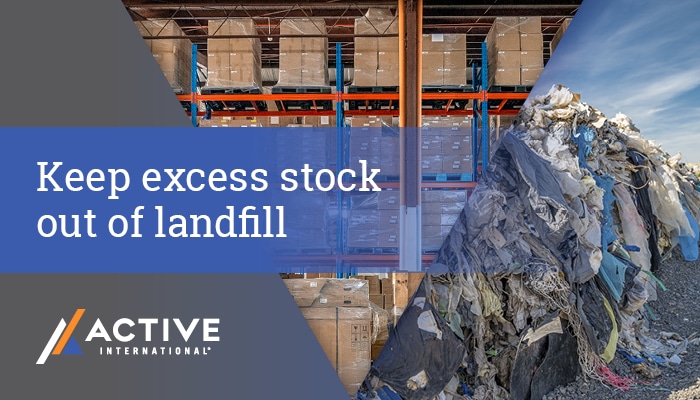Ever wonder why McDonalds sells Diet Coke?
Because sales of Big Macs and fries go up if consumers think they are compensating for their high calorie, high salt meal with a soda that’s been made without sugar. The guilt of the poor meal decision is balanced out somehow by the ‘healthier’ drink.
This is a sort of ‘mental offsetting’. I might be about to eat something which will add to my chances of having a heart attack, but I’ve reduced the impact of the Coke so the two balance out.’
This is the same psychological reason why in a 2011 study, people taking multivitamins allowed themselves to drink more, go into direct sunlight without sunscreen and reduce exercise. They gave themselves permission to do less healthy things which they’d ‘bought’, so to speak, with the health benefit of the multi-vitamin supplement.
By doing something we perceive as good, we give ourselves licence to do something bad. It’s known as the Licensing Effect. And increasing evidence suggests, this same effect is creating risk in our sustainability and waste management strategies. The feeling we get from recycling or offsetting risks encouraging us to add to the problem they are trying to solve. And consume more.
In lab experiments, scientists find when people in a company are told their food waste will be used to make biofuel, rather than binned, they are twice as likely to throw away perfectly edible food. And businesses prove to be far more likely to use plastic bottles, rather than glass, if they think they are going to be recycled – and to feel better about themselves for doing so.
The University of Western Australia’s Dr Tim Kurz, who worked on those experiments, says recycling makes us feel as though “we’ve fulfilled our moral duty”.
“If all of a sudden we didn’t have that recycling stream, maybe people would be more motivated to say to suppliers ‘stop giving us all this stuff in plastic’,” he says.
This matters a great deal less, of course, if recycling is genuinely a silver bullet solution. But, in Australia at least, it is not.
On November 8th Australia’s largest plastic bag recycling project admitted that the 5 million items it collected every day were not being recycled at all, but being stockpiled in warehouses.
And, only last month, a council in South Melbourne was filmed practicing “aspirational recycling”: collecting recycling in the same wagons as other waste and sending it all to landfill.
For businesses which want to feel better about flying overseas for three days, using offset channels to pay for some saplings to be planted won’t cut it. And we can disabuse ourselves of any notion that we can recycle our way out of the climate emergency.
So what should we do instead?
The waste hierarchy places waste reduction at the top, followed by recycling as a distant last resort.
And we think we can help. At Active, our entire business model is built around the work we do to make progress on the journey to zero waste.
Our business keeps product out of landfill and gives it a second life in new markets. It’s something we have been doing for 40 years across more than a dozen countries around the world. We estimate we saved over 14,000 tonnes of food waste from destruction last year, just as we have since the 1980s.
Our model is a ‘tried and tested’ way of reducing the bio-toxin emission and groundwater leachate contamination that emerge from sending product to landfill.
How?
Active starts by analyzing the quantity, quality, and marketability of surplus stock. By understanding the nature of the surplus, we determine the best course of action to prevent it becoming waste.
We then work up a strategic plan to rescue the excess stock. This plan may involve multiple approaches maybe offshore, maybe in new channels, maybe by rebranding, depending on the condition and market demand for the products.
Active handles the entire process of finding alternative uses or targeting different markets, rebranding, repackaging, or adapting the products to suit a new customer base.
We will then offer the client a choice. You can take the cash value for clearing that product. Or we can restore the full wholesale value in media trade credits. In other words, you can have the entire stock value back as part payment for media investment when you advertise.
This use of media trade credit reduces a hard cost in our client’s businesses. So by using the Active model, our client achieves a double whammy.
We help their business create more sustainable practices –avoiding the licensing effect of recycling and carbon offsetting – and we make progress towards zero waste.
Recycling itself is still a mandatory part of the solution. For all the problems in execution, reusing a thousand aluminium cans reduces their carbon footprint by 104kg.
But thinking something can be recycled can distract us from the environmental damage it represents.
“On the basis of our findings,” says Professor Tim Kurz, “one thing seems clear: making a really big deal of the wonderful outcomes of people’s waste is probably an own-goal. Then there’s absolutely no motivation for people to reduce their consumption. And in some cases, you can have this perverse effect where they become more wasteful.”
Recycling makes us feel good about all the stuff we throw away – which enables us to keep consuming. Consumption is the real problem.
And this is what progress towards zero waste can help address. At Active we want to do that and recover the value lost from the unwanted products saving brands significant marketing costs in the process.
Visit AWRE 2023 to delve into Active International’s Group Managing Director, Sarah Keith’s seminar to find out how waste management solutions can profit your business. Discover a world of waste solutions at the national premier platform for resource recovery, register free today!
-
Register for AWRE 2024 now
- Register

